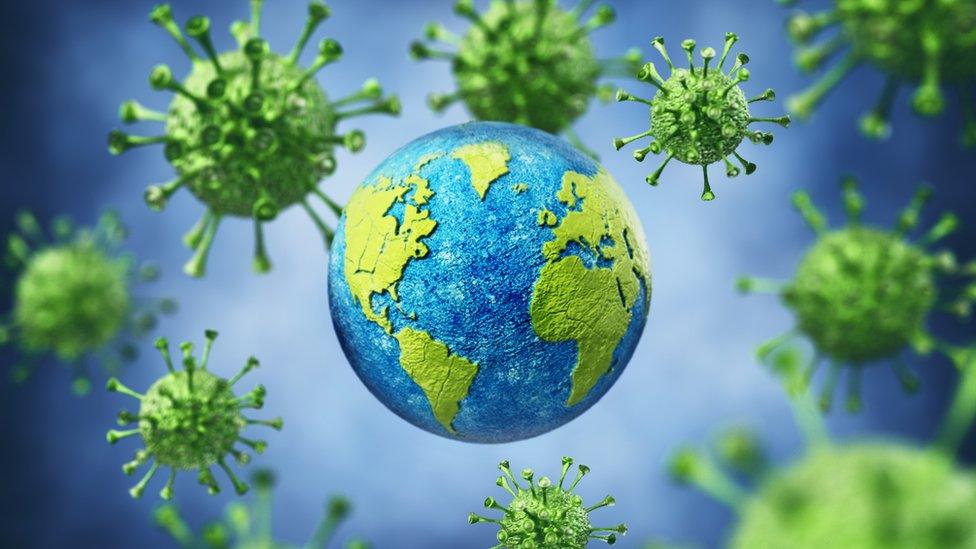Indian coronavirus variant: What is it and what is being done to tackle spread?
- Published

You might have heard people talking about 'new variants' or 'new strains' of coronavirus.
A variant is a different version of a virus - all viruses change and mutate so this is not unusual.
But there is concern about a coronavirus variant, first identified in India, that appears to be spreading in the UK.
The worry is that some new variants of the virus could be able to spread more easily or make people sicker.
On Friday, Prime Minister Boris Johnson said that plans to ease restrictions will go ahead in England on Monday May 17, but that the government's aim is to remove all limits on social contact on 21 June could be delayed.
What is happening with the India variant in the UK?
The NHS is sending a mobile vaccine bus into parts of Bolton with high infections
There are a few "India" variants, but one called B.1.617.2 appears to be spreading more quickly than the other two in the UK.
Sources say it is now being seen in lots of places - including London, Bolton, Tyneside and Nottingham - with few cases linked to travel.
Increased testing and better contact tracing is being carried out in some locations to try to identify these infections, but it may not be stopping the spread.
Extra clinics will open in Blackburn and Darwen in Lancashire from next week to offer the Covid vaccine to those who qualify under national guidelines.
We are monitoring the situation very carefully and will not hesitate to take further action if necessary.
What do we know about the different variants?
There are thousands of different variants of Covid circulating across the world.
Viruses change - or 'mutate' - all the time and most changes are not that serious. But others can make the disease more infectious.
The India variant - officially called B.1.617.2 - is one of five mutated versions of coronavirus which have been highlighted as being "of concern" by UK public health bodies, with others first being identified in Kent, South Africa and Brazil.
Experts believe the Indian variant has mutations that may make it quicker to spread from person to person, but it is not yet known if it causes more severe disease or if it might make current vaccines less effective.
Are they more dangerous?
WATCH: Dr Laverne gives her advice if you're worried about coronavirus
There is no evidence that any of these variants cause much more serious illness for the vast majority of people.
As with the original version of coronavirus, the risk remains highest for people who are elderly or have serious underlying health conditions.
All of those most at risk have now been offered vaccinations, and the government is continuing to get more people vaccinated as quickly as possible to help protect them.
Social distancing - trying to stay at least two metres (three steps) away from anyone you do not live with (or anyone who is not in your support bubble)
Washing your hands with soap and water often and for at least 20 seconds
Using hand sanitiser gel if you do not have access to soap and water
Wearing a face covering
Covering your mouth and nose with a tissue or your sleeve (not your hands) when you cough or sneeze
Not touching your eyes, nose or mouth, if your hands are not clean.
Will vaccines still work against variants?
WATCH: What are vaccines and how can they help fight Covid? (November 2020)
Current vaccines were designed for earlier versions of coronavirus, but scientists believe they should still work.
Almost 36 million people have also received at least one dose of a coronavirus vaccine.
On Friday, Public Health England said vaccines had saved 11,700 lives and stopped 33,000 people becoming seriously ill with the disease in England.
Experts are confident that it will be possible to redesign existing vaccines to better tackle any new mutations.
- Published12 May 2021
- Published11 May 2021
- Published17 May 2021
